15 “Pivotal” Books that Changed How I Think and Live
If I had to choose between a 4-year degree, and the right combination of books, I’d go with the books.
Not 50 Shades of Grey or Captain Underpants , but books that fundamentally change how you think about the world.
Books that, when you’ve finished them, have caused you to “pivot” your mindset . Ones that make you think in a new and more informed way.
Over the last four years, since I started reading heavily, I’d estimate that I’ve finished 300 books.
Reading a ton isn’t hard, but finding pivotal books is grueling. Out of those 300 books, only 15 made my list.
Since realizing what a small percentage of books I was reading were having significant impacts on my mindset, I’ve stopped focusing on mass consumption and instead am focusing on finding more pivotal books.
If you, too, are trying to find books that, when you put them down, have added a new color to the world, here’s my list.
1. Antifragile, by Nassim Taleb

“If true wealth consists in worriless sleeping, clear conscience, reciprocal gratitude, absence of envy, good appetite, muscle strength, physical energy, frequent laughs, no meals alone, no gym class, some physical labor (or hobby), good bowel movements, no meeting rooms, and periodic surprises, then it is largely subtractive (elimination of iatrogenics).”
Key lessons:
- Be the hydra : Develop systems where if one part of you is cut off, you grow back stronger. Entrepreneurship, creative works, freelance, supports this. White collar makes it hard.
- Small damage benefits human systems: Lifting weights damages you briefly, then makes you stronger. Fasting is hard but makes you healthier.
- Removal is better than addition: Cure illness by finding the cause, not by adding medication. Cure unhappiness by finding the source, not by adding indulgence.
2. Letters from a Stoic, by Seneca
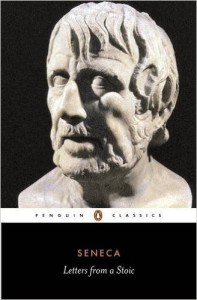
“Let our aim be a way of life not diametrically opposed to, but better than that of the mob.”
Key Lessons:
- We can’t control our fate, only our reactions: Complaining, worrying, dreading, regret, and any other past or future-minded emotions are useless. Recognize them, then let them pass.
- Self-improvement above all else.
- Create internal happiness: Non-reliance on external things for happiness (stuff, people, money, etc.) makes you impervious to loss.
- Be mindful of your inputs: The people you spend time with, the information you read, the environment you’re in all effect you immensely. Cull negative inputs and seek out positive ones.
- Find a mentor: Whether or not you can get direct access to them, model yourself after someone, emulate their successes, skip their failures.
3. Atlas Shrugged, by Ayn Rand

“She was fifteen when it occurred to her for the first time that women did not run railroads and that people might object. To hell with that, she thought- and never worried about it again.”
Key Lessons:
- Do what you were meant to do, and do it big.
- Impersonal egoism isn’t bad: Doing what’s in your best long-term self-interest, and expecting everyone else to do the same, can be the best for all.
- Forget the haters: Don’t try to make everyone happy, if you’re doing anything worthwhile, there will be haters, and you should embrace that.
4. The 4-Hour Workweek / Body, by Tim Ferriss

“Being busy is a form of laziness— lazy thinking and indiscriminate action. Being overwhelmed is often as unproductive as doing nothing, and is far more unpleasant. Being selective— doing less— is the path of the productive. Focus on the important few and ignore the rest.”
Key Lessons:
- Popular / common tactics are usually inefficient: Most systems have a shortcut, you just have to find it.
- Money is not about salary: Money is about freedom, and how you leverage it to create the life you want.
- Your body is malleable: You’re not stuck a certain way, you can easily mold the clay, you just need the right tactics.
5. Mastery, by Robert Greene

“Engaged in the creative process we feel more alive than ever, because we are making something and not merely consuming, Masters of the small reality we create. In doing this work, we are in fact creating ourselves.”
Key Lessons:
- Mastery comes from mentorship, not study: If you want to truly excel, then you need someone who will take you under your wing (and who you can benefit) to rapidly accelerate your education.
- You and your mentors will break up: At a certain point, you must break up with your mentor and move to the next one before they start holding you back.
- Social norms around work breed mediocrity: Most people never become masters of their craft. To become one, you must not be like most people.
6. The War of Art, by Steven Pressfield

“All that counts is that, for this day, for this session, I have overcome Resistance.”
Key Lessons:
- Resistance is pervasive, and must be fought: The hard part of writing isn’t writing, it’s fighting the desire not to write.
- Fear must drive action: The most afraid you are of a work or calling, the more you must do it.
- Friends and family will (likely) hold you back (unintentionally): Others will subconsciously attack your success to make themselves feel better about their mediocrity. Don’t eat with fat people, don’t work with/near losers, don’t drink with alcoholics.
7. The Power of Habit, by Charles Duhigg
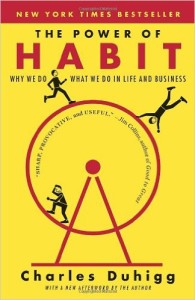
“…more than 40 percent of the actions people performed each day [aren’t] actual decisions, but habits.”
Key Lessons:
- Cue – Routine – Reward: All habits follow this pattern. You can break it at the routine level, replacing bad habits with good ones.
- Keystone habits lift the rest: Certain habits (exercise, healthy eating, play) improve all other habits.
- Cravings are habits: Anytime you feel like you “need” something there’s a cue and routine there that you must identify.
8. Willpower Instinct, by Kelly McGonigal
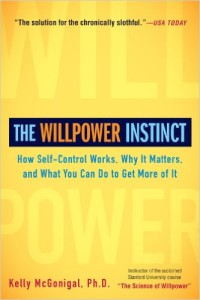
“People who have better control of their attention, emotions, and actions are better off almost any way you look at it.”
Key Lessons:
- Productivity mostly boils down to Willpower: All “productivity hacks” are related to willpower or habits. Understand how those two work, and you don’t need productivity resources.
- Willpower is a resource: Using willpower on one thing drains it for another, e.g. dieting makes you more likely to cheat on your spouse. Use your willpower deliberately, or hack your environment not to need it.
- Willpower is a muscle: You can train your willpower and increase your reserves of it through using it, healthy habits, and meditation.
9. The Psychedelic Explorer’s Guide, by James Fadiman
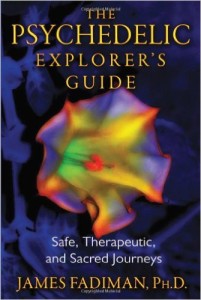
“The increased awareness offered by psychedelics comes in different forms. In higher doses taken in safe and sacred settings, they facilitate recognition of one’s intimate relationship with all living things. In moderate doses, they facilitate awareness of the intricate psychodynamic structures of one’s individual consciousness. In low doses, they facilitate awareness of solutions to technical and artistic problems.”
Key Lessons:
- School / media lies, psychedelics aren’t particularly harmful: No one has died or suffered physical damage from LSD, mushrooms, DMT, etc.
- Psychedelics can be a massive creative boon: Properly administered, they’ve helped creatives work through complex problems in ways their sober minds couldn’t.
- Micro-doses of psychedelics could outperform caffeine as a “productivity enhancer”: Maybe one day we’ll have our morning tab instead of coffee.
10. Siddhartha, by Herman Hesse
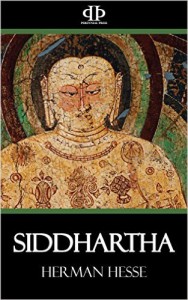
“…for you know that soft is stronger than hard, water stronger than rock, love stronger than force.”
Key Lessons:
- No one is impervious to temptation: The most refined, spiritual person can still fall prey to vices. Don’t assume you’re above it.
- Meditation, self-knowledge, are lifetime arts: They are not something you “finish,” but rather must always be working on.
- You only have yourself: Everything else can be lost or taken, self-reliance should be your only reliance.
11. Blue Zones, by Dan Buettner
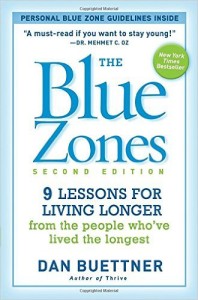
“You can’t just focus on the Mediterranean diet or any other diet. If you live by yourself on the ninth floor of an apartment building and you don’t know your neighbors and you have no friends, you can eat the perfect Mediterranean diet and it may not do you as much good.”
Key Lessons:
- Longevity is a matter of habit, not genetics: You can create a long life for yourself by emulating the right practices.
- Modern society is killing us: Most of “modern life” is against those things that create longevity. And life expectancy is decreasing at the upper ends.
- To live forever: Healthy diet, strong social connections, plenty of rest, herbal tea, red wine, religion/spirituality, and low stress.
12. Deep Work, by Cal Newport
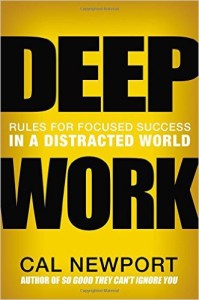
“To build your working life around the experience of flow produced by deep work is a proven path to deep satisfaction.”
Key Lessons:
- Great work requires deep work, and most work is now shallow. Interruptions, technology, responding, and pseudo-productive tasks distract us from doing our best, most important, work.
- Create a deep work environment: Set aside a period of your day where you can become deeply immersed in your work, free from distraction or obligation.
- Time != Productivity: It’s not about how many hours you work for, but how much deep work you get in. 3 deep hours are better than 9 shallow hours.
13. The Talent Code, by Daniel Coyle
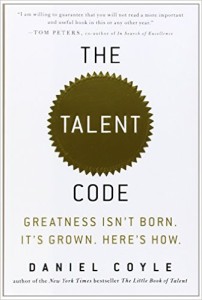
“…experiences where you’re forced to slow down, make errors, and correct them— as you would if you were walking up an ice-covered hill, slipping and stumbling as you go— end up making you swift and graceful without your realizing it.”
Key Lessons:
- Talent is a myth: No study has shown that humans have certain “talents,” rather, they show the opposite, that skill is entirely a result of effective practice.
- Talent is an excuse: People will explain away others’ successes as “talent,” but it’s an excuse for their failure to excel. Don’t be one of those people. Assume you can become equally good at anything with the right kind of practice.
- Struggle is where you learn: The key to deep practice and rapid skill acquisition is the right amount of struggle. Enough to be challenged and in flow, not too much to be disparaged and overwhelmed.
14. How to Win Friends and Influence People, by Dale Carnegie

“Say to yourself over and over: “My popularity, my happiness and sense of worth depend to no small extent upon my skill in dealing with people.””
Key Lessons:
- Smile. I suck at this. I blame my Scandinavian heritage.
- *Use people’s names: * Everyone likes their name, use it more, but not too much.
- Don’t tell, get them to want: Getting someone to want to do something will always be better than telling them to do it.
- Never argue: The heat of an argument prevents effective discourse. Bring down the emotional level, and then talk reasonably
- Be vulnerable, don’t criticize: Let other people save face, and highlight your weaknesses before highlighting others’.
15. Getting Results the Agile Way, by J.D. Meier
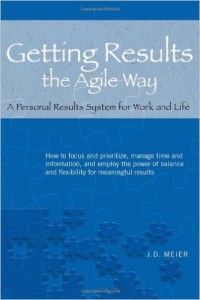
“Rather than a static set of dreams and ideals, test your results along the way and carve out the path that works for you.”
Key Lessons:
- General productivity: This is the only productivity book that’s ever “stuck” with me, and I still use some form of its tactics 4 years later.
- Break down your goals: Have big macro goals, and break them down to the month, week, and day till they’re manageable.
- Make everything actionable: If it’s not actionable, you’ll procrastinate on it. Keep your to-do’s clear and focused.
How about you? What books most affected how you think and live? Leave a comment and let me know!

